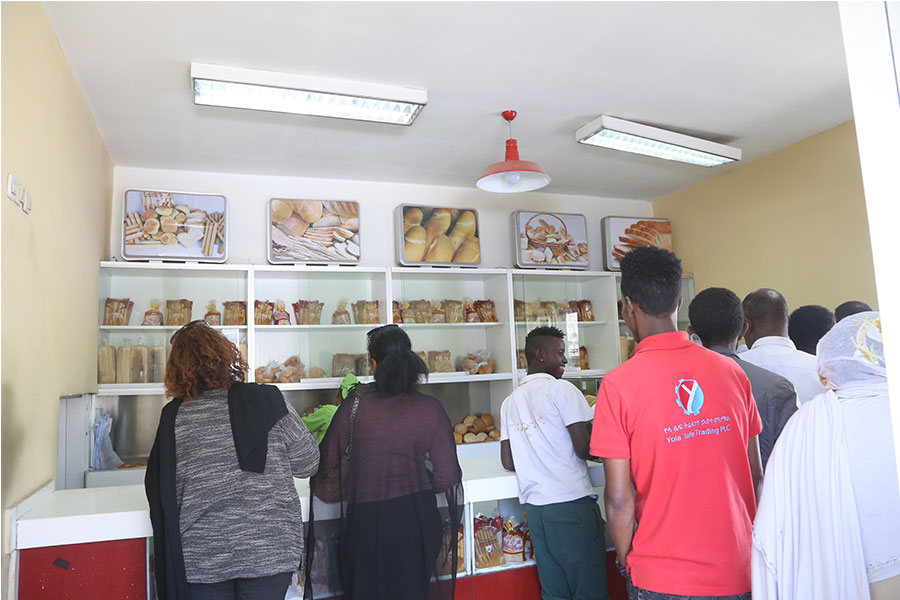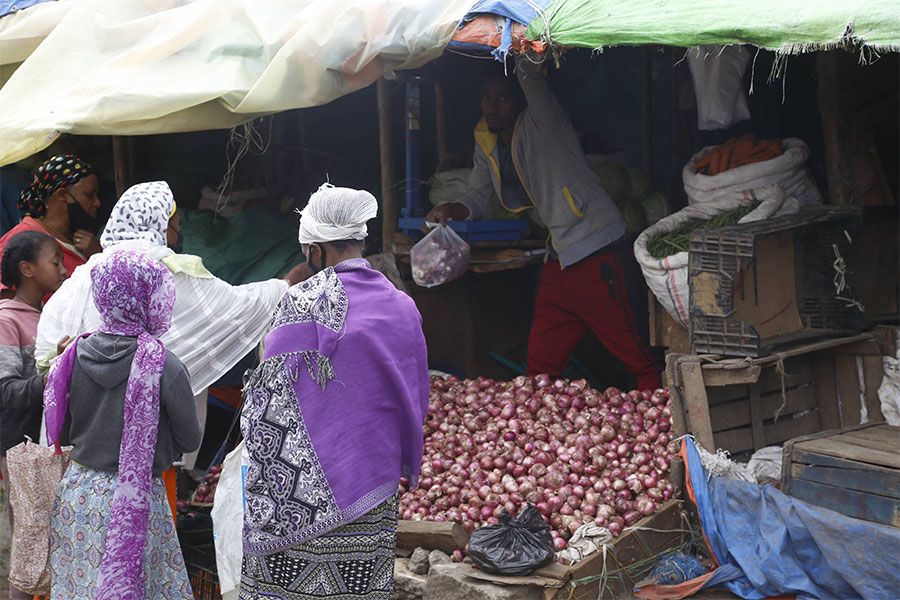
Viewpoints | Jun 17,2023
Construction industry leaders have urged policymakers to “immediately” intervene in what they say are “untenable problems” besieging their industry, particularly concerning cement availability and soaring prices.
The Construction Contractors Association, an industry lobby group led by Girma Habtemariam, is troubled by issues with the supply of cement, rebar and finishing building materials. These are among the list of grievances presented by the Association to the Ministry of Trade & Industry and the Addis Abeba Construction Bureau. Already afflicted by the COVID-19 pandemic and discouraged from furloughing labour, the construction industry is now being challenged with a shortage of supplies, according to Yesuf Mohammed, vice president of the Association.
The organisation claims that these problems have forced delays and cancellations on several construction projects in which their members are involved. Such was the case with a public housing project in the Arabsa site in the northeast of Addis Abeba, where construction work has remained interrupted for two months. Association leaders blame a shortage of cement and a surge in prices to 700 Br a quintal.
There are currently 13 operational cement plants including Messebo Cement Factory in Tigray Regional State, which resumed production early last week following a three-month closure due to the ongoing conflict.
The plants have an aggregate annual production capacity of 15.1 million tonnes; however, they only managed to produce 8.5 million tonnes of cement last year.
"There's no guarantee that a cement factory operating today will operate tomorrow," said Netsanet Abebe, head of a directorate at the Ministry of Trade responsible for chemical and construction inputs.
The factories face frequent power outages and foreign currency shortages for buying spare parts and inputs as their main constraints to production, while lengthy distribution channels and security threats are barriers to delivering cement products to the market. In the cement value chain, over 22,000 people are believed to be employed, whose livelihoods are now threatened.
Leaders of the Association, however, believe that there is enough supply of cement in the country and attribute the problems to the intervention by the government, which disrupted the supply chain, leading retailers to raise prices. They are pushing for the government to allow direct sales by the plants to contractors; and allow contractors to import cement from abroad to fill gaps in supply.
"The role of the Association is informing government bodies about the issues, and we have done that,” Girma, president of the Association, told Fortune.
There is a relatively adequate amount of cement available, conceded Eshete Asfaw, state minister for Trade. The government is trying to make the best use of it, but cement factories cannot accommodate the demands of all contractors, according to him.
"We've created a way to avoid the load that would be on the factories and distribute the cement fairly," said Eshete.
Eshete disclosed that the Ministry of Trade is preparing a mechanism for monitoring and regulation in the cement distribution chain, aimed at taming retailers.
PUBLISHED ON
Mar 20,2021 [ VOL
21 , NO
1090]

Viewpoints | Jun 17,2023

Agenda | Apr 15,2023

Featured | Sep 07,2025

Agenda | Feb 09,2019

Fortune News | Mar 25,2023

Fortune News | May 15,2024

Radar | Apr 02,2022

Agenda | Jun 29,2025

Agenda | Sep 26,2021

Fortune News | Dec 11,2021

Dec 22 , 2024 . By TIZITA SHEWAFERAW
Charged with transforming colossal state-owned enterprises into modern and competitiv...

Aug 18 , 2024 . By AKSAH ITALO
Although predictable Yonas Zerihun's job in the ride-hailing service is not immune to...

Jul 28 , 2024 . By TIZITA SHEWAFERAW
Unhabitual, perhaps too many, Samuel Gebreyohannes, 38, used to occasionally enjoy a couple of beers at breakfast. However, he recently swit...

Jul 13 , 2024 . By AKSAH ITALO
Investors who rely on tractors, trucks, and field vehicles for commuting, transporting commodities, and f...

Oct 11 , 2025
Ladislas Farago, a roving Associated Press (AP) correspondent, arrived in Ethiopia in...

Oct 4 , 2025
Eyob Tekalegn (PhD) had been in the Governor's chair for only weeks when, on Septembe...

Sep 27 , 2025
Four years into an experiment with “shock therapy” in education, the national moo...

Sep 20 , 2025
Getachew Reda's return to the national stage was always going to stir attention. Once...